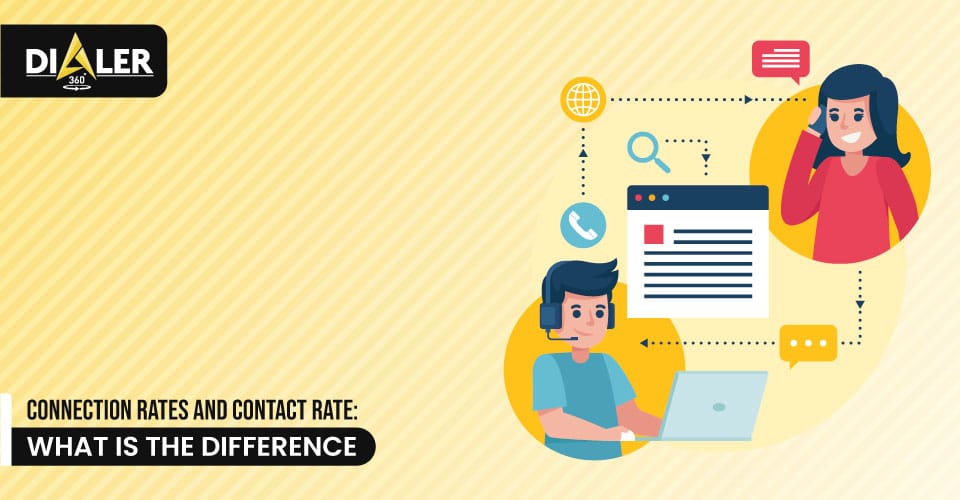
Nowadays, customers seek for an interactive and skilled person on call for the problems that they can’t resolve by themselves. Mostly, customers prefer to talk with a cheerful professional who listens to them actively and handle the issue skillfully.
So, the call center representatives should be well-equipped with essential call center etiquettes as their bread and butter depend on it. They can’t just pick up the phone and say “Hello?”, rather they are expected to go the extra mile.
A cheerful, well-trimmed, and professional communication is necessary to get positive customer feedback. Nevertheless, having positive customer feedback, you better know, is the key to the gold mine for a call center.
So, here we have gathered some awesome, top-leading, and most effective call center etiquettes. Just stay tuned till the end of this write-up.
Speak as Clearly as Possible
A well-known proverb says, first think, then speak. This comes true when you are talking with a frustrated customer. Yes, an in-person talk involves body language as well as some gentle smiles. Contrarily, when talking on the phone, the customer cannot see your smile or body language. So, it’s your voice that does it all.
That’s why it is too important to talk clearly and professionally. Avoid shouting while projecting your voice. Moreover, a strong and confident voice will make your customers trust you and your suggestions more confidently. However, if the agent feels that the communication is going wrong, he/she must immediately ask to hang up and call back.
Listen to Your Customers Actively and Take Notes
Be swift to hear, and slow to speak. Yes, listen to your customers actively and let them realize that you are empathetic to their problems. Go the extra mile and respond to them basing on their inconveniences rather than using a prescribed script.
On the other hand, you will be able to jot down these points to resolve the issue at the end of a conversation without asking your customer to repeat them. Also, taking notes during conversation would be helpful for the sake of post-talk data entry.
The Agent Should Remain Cheerful
The agent should try to understand the customer situation by stepping into their shoes. The customers make calls when they have no other choice. So, treat them cheerfully, friendly, and positively. Remind yourself that you have to make their calling time more memorable and relaxing.
So, train your agents to face the negativity with a positive attitude. An agent’s positive outlook may be enough to turn a failing call into right around. The agent should be determined to make every call a memorable one for customers. So, make the call as best as possible, and it will create a loyal, lifetime customer.
Be Extra Courteous and Helpful
Being helpful makes the customer’s frustration lessened immediately. Yes, of course, all doors open to courtesy. So, be helping and courteous with your customers in all the situations. You can add some value by using powerfully positive words like:
- Wonderful
- Delighted
- Certainly
- Absolutely
On the other hand, if you didn’t get what customer is talking, don’t blame their phone or signals. Rather, you should say, “I am so sorry, can you please repeat that?”
Moreover, if you need to confirm spellings of their name, be cheerful and creative. For instance, you could say, “Did you say W, as in wonderful?” So, being helpful, creative, and courteous will make the image of the brand more cheery and joyful.
Make the Confidence Your Best Tool
Confidence and boldness make your customers realized that you know what you are talking about. A confident tone wins the half-game as fortune favors the brave. Also, you should talk to the customer as if no one can take better care of them than you can.
However, keep in mind that blind confidence can lead to the ultimate catastrophe. Yes, you and your team must get training very well.
So, all the agents should be updated and well-equipped with the necessary information. If your confidence would be based on the information and knowledge, you’ll be primed to handle any call.
Use Appropriate Language
Remember that the key difference between personal and professional calls is the language. Yes, you can use slangs and swears when talking with friends and peers. Contrarily, you have to use professional and proper language when talking with customers. Otherwise, you may lose that customer for a lifetime.
On the other hand, the agents should be mindful of the language. You don’t know what may offend your customer. So, it would be better to be respectful and formal.
However, it would be ok to add humor, if appropriate, but cracking joke can upset the customer.
Maintain A Proper Voice Volume
Mostly, agents just focus on their concerns when talking with customers. Yes, they may raise their volume and inhibit the working-pace of other coworkers.
So, agents must be mindful that other colleagues don’t get distracted due to their higher talking volumes. Though customers are the main concern of an organization, yet agents must have to maintain work ethics at the job premise.
We would suggest if you have to talk loudly, either due to a bad connection or a hard-of-hearing customer, step out of the office and speak with them separately.
Answer A Call as Soon as Possible
There is another dilemma. This dilemma involves two factors. One, the agents have to pick up the calls as soon as possible. The other is to take enough time by agents for getting prepared for the conversation.
If the agent picks up the call immediately, the agent wouldn’t be ready enough to talk properly. And if the call rings for endless time, the customer will end up with negative sentiments.
So, we would recommend to pick up the call after three rings. Yes, three rings will allow the agent to get ready. On the other hand, three rings wouldn’t cause a customer to hang up.
In Summary
These above-mentioned nine tips can help you to manage calls instantly. However, customers may demand more. For instance, a customer can ask for doing something that is against your organization.
Moreover, at times, customers demand to speak with the manager, don’t understand your explanation, and stay on calls for too long. You and your team must be trained enough to handle all such situations effectively.




